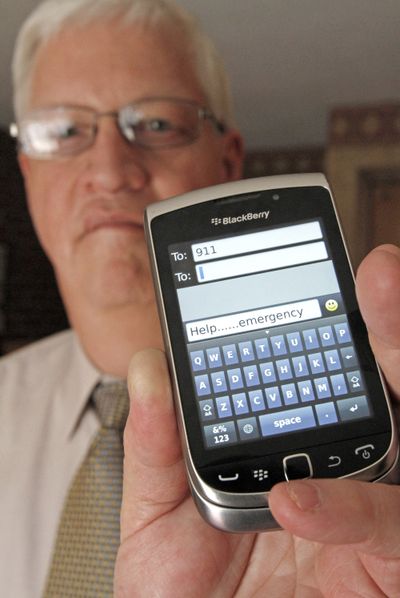Major phone carriers providing texting 911 service

MONTPELIER, Vt. – The four major U.S. wireless phone companies are providing emergency texting 911 service as of this month to any local government that wants it and has the capability to use it, a big step toward moving the nation’s emergency dispatch system out of the voice-only technology that dates to the 1960s.
Local governments in 16 states are using it, according to the Federal Communications Commission, and Vermont became the first to offer the technology statewide Monday.
“This is a big deal,” Brian Fontes, the chief executive officer of the Virginia-based National Emergency Number Association, said of the four major carriers offering text-to-911.
“It’s been a long time – years, decades – since our nation’s 911 systems have been advanced. They are pretty much still almost 100 percent voice-centric, 1960s technology.”
Fontes said 911 texting is part of a broader push to use technology to enhance the information that can be provided to emergency responders.
“In today’s technology world where you and I and other people have smartphones that can do many different things simultaneously, it’s important that we have the opportunity to ensure that our nation’s 911 centers are equally equipped with technology.”
The four major providers – Sprint, Verizon Wireless, T-Mobile and AT&T – voluntarily committed to providing the service by May 15. The FCC has required all service providers to offer it by the end of the year.
The text-to-911 service is now limited to text only – photos, videos and location information will have to wait for the next generation of the technology.
Industry experts tell people to limit texts for help to circumstances when voice calls can’t be made, such as for the deaf or hard of hearing or in domestic violence cases where people can’t speak.